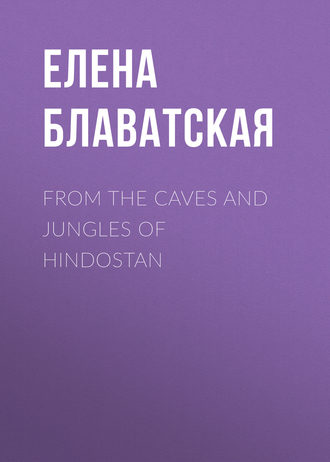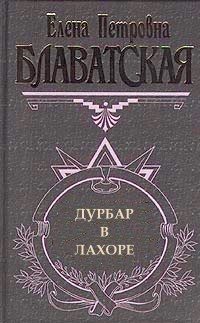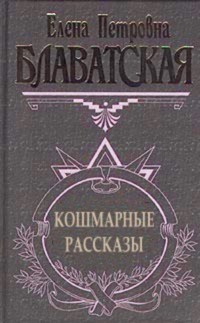 полная версия
полная версияFrom the Caves and Jungles of Hindostan
Mandu is situated on the ridge of the Vindhya Mountains, about two thousand feet above the surface of the sea. According to Malcolm's statement, this town was built in A.D. 313, and for a long time was the capital of the Hindu Rajas of Dhara. The historian Ferishtah points to Mandu as the residence of Dilivan-Khan-Ghuri, the first King of Malwa, who flourished in 1387-1405. In 1526 the town was taken by Bahadur-Shah, King of Gujerat, but in 1570 Akbar won this town back, and a marble slab over the town gate still bears his name and the date of his visit.
On entering this vast city in its present state of solitude (the natives call it the "dead town") we all experienced a peculiar feeling, not unlike the sensation of a man who enters Pompeii for the first time. Everything shows that Mandu was once one of the wealthiest towns of India. The town wall is thirty-seven miles long. Streets ran whole miles, on their sides stand ruined palaces, and marble pillars lie on the ground. Black excavations of the subterranean halls, in the coolness of which rich ladies spent the hottest hours of the day, peer from under dilapidated granite walls. Further on are broken stairs, dry tanks, waterless fountains, endless empty yards, marble platforms, and disfigured arches of majestic porches. All this is overgrown with creepers and shrubs, hiding the dens of wild beasts. Here and there a well-preserved wall of some palace rises high above the general wreck, its empty windows fringed with parasitic plants blinking and staring at us like sightless eyes, protesting against troublesome intruders. And still further, in the very centre of the ruins, the heart of the dead town sends forth a whole crop of broken cypresses, an untrimmed grove on the place where heaved once so many breasts and clamoured so many passions.
In 1570 this town was called Shadiabad, the abode of happiness. The Franciscan missionaries, Adolf Aquaviva, Antario de Moncerotti, and others, who came here in that very year as an embassy from Goa to seek various privileges from the Mogul Government, described it over and over again. At this epoch it was one of the greatest cities of the world, whose magnificent streets and luxurious ways used to astonish the most pompous courts of India. It seems almost incredible that in such a short period nothing should remain of this town but the heaps of rubbish, amongst which we could hardly find room enough for our tent. At last we decided to pitch it in the only building which remained in a tolerable state of preservation, in Yami-Masjid, the cathedral-mosque, on a granite platform about twenty-five steps higher than the square. The stairs, constructed of pure marble like the greater part of the town buildings, are broad and almost untouched by time, but the roof has entirely disappeared, and so we were obliged to put up with the stars for a canopy. All round this building runs a low gallery supported by several rows of thick pillars. From a distance it reminds one, in spite of its being somewhat clumsy and lacking in proportion, of the Acropolis of Athens. From the stairs, where we rested for a while, there was a view of the mausoleum of Gushanga-Guri, King of Malwa, in whose reign the town was at the culmination of its brilliancy and glory. It is a massive, majestic, white marble edifice, with a sheltered peristyle and finely carved pillars. This peristyle once led straight to the palace, but now it is surrounded with a deep ravine, full of broken stones and overgrown with cacti. The interior of the mausoleum is covered with golden lettering of inscriptions from the Koran, and the sarcophagus of the sultan is placed in the middle. Close by it stands the palace of Baz-Bahadur, all broken to pieces—nothing now but a heap of dust covered with trees.
We spent the whole day visiting these sad remains, and returned to our sheltering place a little before sunset, exhausted with hunger and thirst, but triumphantly carrying on our sticks three huge snakes, killed on our way home. Tea and supper were waiting for us. To our great astonishment we found visitors in the tent. The Patel of the neighboring village—something between a tax-collector and a judge—and two zemindars (land owners) rode over to present us their respects and to invite us and our Hindu friends, some of whom they had known previously, to accompany them to their houses. On hearing that we intended to spend the night in the "dead town" they grew awfully indignant. They assured us it was highly dangerous and utterly impossible. Two hours later hyenas, tigers, and other beasts of prey were sure to come out from under every bush and every ruined wall, without mentioning thousands of jackals and wild cats. Our elephants would not stay, and if they did stay no doubt they would be devoured. We ought to leave the ruins as quickly as possible and go with them to the nearest village, which would not take us more than half an hour. In the village everything had been prepared for us, and our friend the Babu was already there, and getting impatient at our delay.
Only on hearing this did we become aware that our bareheaded and cautious friend was conspicuous by his absence. Probably he had left some time ago, without consulting us, and made straight to the village where he evidently had friends. Sending for us was a mere trick of his. But the evening was so sweet, and we felt so comfortable, that the idea of upsetting all our plans for the morning was not at all attractive. Besides, it seemed quite ridiculous to think that the ruins, amongst which we had wandered several hours without meeting anything more dangerous than a snake, swarmed with wild animals. So we smiled and returned thanks, but would not accept the invitation.
"But you positively must not dare to stay here," insisted the fat Patel. "In case of accident, I shall be responsible for you to the Government. Is it possible you do not dread a sleepless night spent in fighting jackals, if not something worse? You do not believe that you are surrounded with wild animals..... It is true they are invisible until sunset, but nevertheless they are dangerous. If you do not believe us, believe the instinct of your elephants, who are as brave as you, but a little more reasonable. Just look at them!"
We looked. Truly, our grave, philosophic-looking elephants behaved very strangely at this moment. Their lifted trunks looked like huge points of interrogation. They snorted and stamped restively. In another minute one of them tore the thick rope, with which he was tied to a broken pillar, made a sudden volte-face with all his heavy body, and stood against the wind, sniffing the air. Evidently he perceived some dangerous animal in the neighborhood.
The colonel stared at him through his spectacles and whistled very meaningly.
"Well, well," remarked he, "what shall we do if tigers really assault us?"
"What shall we do indeed?" was my thought. "Takur Gulab-Lal-Sing is not here to protect us."
Our Hindu companions sat on the carpet after their oriental fashion, quietly chewing betel. On being asked their opinion, they said they would not interfere with our decision, and were ready to do exactly as we liked. But as for the European portion of our party, there was no use concealing the fact that we were frightened, and we speedily prepared to start. Five minutes later we mounted the elephants, and, in a quarter of an hour, just when the sun disappeared behind the mountain and heavy darkness instantaneously fell, we passed the gate of Akbar and descended into the valley.
We were hardly a quarter of a mile from our abandoned camping place when the cypress grove resounded with shrieking howls of jackals, followed by a well-known mighty roar. There was no longer any possibility of doubting. The tigers were disappointed at our escape. Their discontentment shook the very air, and cold perspiration stood on our brows. Our elephant sprang forward, upsetting the order of our procession and threatening to crush the horses and their riders before us. We ourselves, however, were out of danger. We sat in a strong howdah, locked as in a dungeon.
"It is useless to deny that we have had a narrow escape!" remarked the colonel, looking out of the window at some twenty servants of the Patel, who were busily lighting torches.
Brahmanic Hospitalities
In an hour's time we stopped at the gate of a large bungalow, and were welcomed by the beaming face of our bareheaded Bengali. When we were all safely gathered on the verandah, he explained to us that, knowing beforehand that our "American pigheadedness" would not listen to any warning, he had dodged up this little scheme of his own and was very glad he had been successful.
"Now let us go and wash our hands, and then to supper. And," he added, addressing me, "was it not your wish to be present at a real Hindu meal? This is your opportunity. Our host is a Brahman, and you are the first Europeans who ever entered the part of his house inhabited by the family."–
Who amongst Europeans ever dreamed of a country where every step, and the least action of everyday life, especially of the family life, is controlled by religious rites and cannot be performed except according to a certain programme? India is this country. In India all the important incidents of a man's life, such as birth, reaching certain periods of a child's life, marriage, fatherhood, old age and death, as well as all the physical and physiological functions of everyday routine, like morning ablutions, dressing, eating, et tout ce qui s'en suit, from a man's first hour to his last sigh, everything must be performed according to a certain Brahmanical ritual, on penalty of expulsion from his caste. The Brahmans may be compared to the musicians of an orchestra in which the different musical instruments are the numerous sects of their country. They are all of a different shape and of a different timbre; but still every one of them obeys the same leader of the band. However widely the sects may differ in the interpretation of their sacred books, however hostile they may be to each other, striving to put forward their particular deity, every one of them, obeying blindly the ancient custom, must follow like musicians the same directing wand, the laws of Manu. This is the point where they all meet and form a unanimous, single-minded community, a strongly united mass. And woe to the one who breaks the symphony by a single discordant note! The elders and the caste or sub-caste councils (of these there are any number), whose members hold office for life, are stern rulers. There is no appeal against their decisions, and this is why expulsion from the caste is a calamity, entailing truly formidable consequences. The excommunicated member is worse off than a leper, the solidarity of the castes in this respect being something phenomenal. The only thing that can bear any comparison with it is the solidarity of the disciples of Loyola. If members of two different castes, united by the sincerest feelings of respect and friendship, may not intermarry, may not dine together, are forbidden to accept a glass of water from each other, or to offer each other a hookah, it becomes clear how much more severe all these restrictions must be in the case of an excommunicated person. The poor wretch must literally die to everybody, to the members of his own family as to strangers. His own household, his father, wife, children, are all bound to turn their faces from him, under the penalty of being excommunicated in their turn. There is no hope for his sons and daughters of getting married, however innocent they may be of the sin of their father.
From the moment of "excommunication" the Hindu must totally disappear. His mother and wife must not feed him, must not let him drink from the family well. No member of any existing caste dares to sell him his food or cook for him. He must either starve or buy eatables from outcasts and Europeans, and so incur the dangers of further pollution. When the Brahmanical power was at its zenith, such acts as deceiving, robbing and even killing this wretch were encouraged, as he was beyond the pale of the laws. Now, at all events, he is free from the latter danger, but still, even now, if he happens to die before he is forgiven and received back into his caste, his body may not be burned, and no purifying mantrams will be chanted for him; he will be thrown into the water, or left to rot under the bushes like a dead cat.
This is a passive force, and its passiveness only makes it more formidable. Western education and English influence can do nothing to change it. There exists only one course of action for the excommunicated; he must show signs of repentance and submit to all kinds of humiliations, often to the total loss of all his worldly possessions. Personally, I know several young Brahmans, who, having brilliantly passed the university examinations in England, have had to submit to the most repulsive conditions of purification on their return home; these purifications consisting chiefly in shaving off half their moustaches and eyebrows, crawling in the dust round pagodas, clinging during long hours to the tail of a sacred cow, and, finally, swallowing the excrements of this cow. The latter ceremony is called "Pancha-Gavya," literally, the five products of the cow: milk, curds, butter, etc. The voyage over Kalapani, the black water, that is to say the sea, is considered the worst of all the sins. A man who commits it is considered as polluting himself continually, from the first moment of his going on board the bellati (foreign) ship.
Only a few days ago a friend of ours, who is an LL.D., had to undergo this "purgation," and it nearly cost him his reason. When we remonstrated with him, pointing out that in his case it was simply foolish to submit, he being a materialist by conviction and not caring a straw for Brahmanism, he replied that he was bound to do so for the following reasons:
"I have two daughters," he explained, "one five, the other six years old. If I do not find a husband for the eldest of them in the course of the coming year, she will grow too old to get married, nobody will think of espousing her. Suppose I suffer my caste to excommunicate me, both my girls will be dishonored and miserable for the rest of their lives. Then, again, I must take into consideration the superstitions of my old mother. If such a misfortune befell me, it would simply kill her....."
But why should he not free himself from every bond to Brahmanism and caste? Why not join, once for all, the ever-growing community of men who are guilty of the same offence? Why not ask all his family to form a colony and join the civilization of the Europeans?
All these are very natural questions, but unfortunately there is no difficulty in finding reasons for answering them in the negative.
There were thirty-two reasons given why one of Napoleon's marshals refused to besiege a certain fortress, but the first of these reasons was the absence of gunpowder, and so it excluded the necessity of discussing the remaining thirty-one. Similarly the first reason why a Hindu cannot be Europeanized is quite sufficient, and does not call for any additional ones. This reason is that by doing so a Hindu would not improve his position. Were he such an adept of science as to rival Tyndall, were he such a clever politician as to eclipse the genius of Disraeli and Bismarck, as soon as he actually had given up his caste and kinsmen, he would indubitably find himself in the position of Mahomet's coffin; metaphorically speaking, he would hang half-way between the earth and the sky.
It would be an utter injustice to suppose that this state of things is the result of the policy of the English Government; that the said Government is afraid of giving a chance to natives who may be suspected of being hostile to the British rule. In reality, the Government has little or nothing to do with it. This state of things must be attributed entirely to the social ostracism, to the contempt felt by a "superior" for an "inferior" race, a contempt deeply rooted in some members of the Anglo-Indian society and displayed at the least provocation. This question of racial "superiority" and "inferiority" plays a more important part than is generally believed, even in England. Nevertheless, the natives (Mussulmans included) do not deserve contempt, and so the gulf between the rulers and the ruled widens with every year, and long centuries would not suffice to fill it up.
I have to dwell upon all this to give my readers a clear idea on the subject. And so it is no wonder the ill-fated Hindus prefer temporary humiliations and the physical and moral sufferings of the "purification," to the prospect of general contempt until death. These were the questions we discussed with the Brahmans during the two hours before dinner.
Dining with foreigners and people belonging to different castes is, no doubt, a dangerous breach of Manu's sacred precepts. But this time, for once, it was easily explained. First, the stout Patel, our host, was the head of his caste, and so was beyond the dread of excommunication; secondly, he had already taken all the prescribed and advisable precautions against being polluted by our presence. He was a free-thinker in his own way, and a friend of Gulab-Lal-Sing, and so he rejoiced at the idea of showing us how much skillful sophistry and strategical circumspection can be used by adroit Brahmans to avoid the law in some circumstances, while adhering at the same time to its dead letter. Besides, our good-natured, well-favored host evidently desired to obtain a diploma from our Society, being well aware that the collector of his district was enrolled amongst our members.
These, at any rate, were the explanations of our Babu when we expressed our astonishment; so it was our concern to make the most of our chance, and to thank Providence for this rare opportunity. And this we accordingly did.
Hindus take their food only twice a day, at ten o'clock in the morning and at nine in the evening. Both meals are accompanied by complicated rites and ceremonies. Even very young children are not allowed to eat at odd times, eating without the prescribed performance of certain exorcisms being considered a sin. Thousands of educated Hindus have long ceased to believe in all these superstitious customs, but, nevertheless, they are daily practised.
Sham Rao Bahunathji, our host, belonged to the ancient caste of Patarah Prabhus, and was very proud of his origin. Prabhu means lord, and this caste descends from the Kshatriyas. The first of them was Ashvapati (700 B.C.), a lineal descendant of Rama and Prithu, who, as is stated in the local chronology, governed India in the Dvapara and Treta Yugas, which is a good while ago! The Patarah Prabhus are the only caste within which Brahmans have to perform certain purely Vedic rites, known under the name of the "Kshatriya rites." But this does not prevent their being Patans, instead of Patars, Patan meaning the fallen one. This is the fault of King Ashvapati. Once, when distributing gifts to holy anchorites, he inadvertently forgot to give his due to the great Bhrigu. The offended prophet and seer declared to him that his reign was drawing near its end, and that all his posterity would perish. The king, throwing himself on the ground, implored the prophet's pardon. But his curse had worked its fulfilment already. All that he could do to stop the mischief consisted in a solemn promise not to let the king's descendants disappear completely from the earth. However, the Patars soon lost their throne and their power. Since then they have had to "live by their pens," in the employment of many successive governments, to exchange their name of Patars for Patans, and to lead a humbler life than many of their late subjects. Happily for our talkative Amphitryon, his forefathers became Brahmans, that is to say "went through the golden cow."
The expression "to live by their pens" alludes, as we learned later on, to the fact of the Patans occupying all the small Government posts in the Bombay Presidency, and so being dangerous rivals of the Bengali Babus since the time of British rule. In Bombay the Patan clerks reach the considerable figure of five thousand. Their complexion is darker than the complexion of Konkan Brahmans, but they are handsomer and brighter. As to the mysterious expression, "went through the golden cow," it illustrates a very curious custom. The Kshatriyas, and even the much-despised Shudras, may become a sort of left-hand Brahmans. This metamorphosis depends on the will of the real Brahmans, who may, if they like, sell this right for several hundreds or thousands of cows. When the gift is accomplished, a model cow, made of pure gold, is erected and made sacred by the performance of some mystical ceremonies. The candidate must now crawl through her hollow body three times, and thus is transformed into a Brahman. The present Maharaja of Travankor, and even the great Raja of Benares, who died recently, were both Shudras who acquired their rights in this manner. We received all this information and a notion of the legendary Patar chronicle from our obliging host.
Having announced that we must now get ready for dinner, he disappeared in the company of all the gentlemen of our party. Being left to ourselves, Miss X– and I decided to have a good look at the house whilst it was empty. The Babu, being a downright, modern Bengali, had no respect for the religious preparations for dinner, and chose to accompany us, proposing to explain to us all that we should otherwise fail to understand.
The Prabhu brothers always live together, but every married couple have separate rooms and servants of their own. The habitation of our host was very spacious. There were small several bungalows, occupied by his brothers, and a chief building containing rooms for visitors, the general dining-room, a lying-in ward, a small chapel with any number of idols, and so on. The ground floor, of course, was surrounded by a verandah pierced with arches leading to a huge hall. All round this hall were wooden pillars adorned with exquisite carving. For some reason or other, it struck me that these pillars once belonged to some palace of the "dead town." On close examination I only grew more convinced that I was right. Their style bore no traces of Hindu taste; no gods, no fabulous monster animals, only arabesques and elegant leaves and flowers of nonexistent plants. The pillars stood very close to each other, but the carvings prevented them from forming an uninterrupted wall, so that the ventilation was a little too strong. All the time we spent at the dinner table miniature hurricanes whistled from behind every pillar, waking up all our old rheumatisms and toothaches, which had peacefully slumbered since our arrival in India.
The front of the house was thickly covered with iron horseshoes—the best precaution against evil spirits and evil eyes.
At the foot of a broad, carved staircase we came across a couch or a cradle, hung from the ceiling by iron chains. I saw somebody lying on it, whom, at first sight, I mistook for a sleeping Hindu, and was going to retreat discreetly, but, recognizing my old friend Hanuman, I grew bold and endeavored to examine him. Alas! the poor idol possessed only a head and neck, the rest of his body was a heap of old rags.
On the left side of the verandah there were many more lateral rooms, each with a special destination, some of which I have mentioned already. The largest of these rooms was called "vattan," and was used exclusively by the fair sex. Brahman women are not bound to spend their lives under veils, like Mussulman women, but still they have very little communication with men, and keep aloof. Women cook the men's food, but do not dine with them. The elder ladies of the family are often held in great respect, and husbands sometimes show a shy courteousness towards their wives, but still a woman has no right to speak to her husband before strangers, nor even before the nearest relations, such as her sisters and her mother.
As to the Hindu widows, they really are the most wretched creatures in the whole world. As soon as a woman's husband dies she must have her hair and her eyebrows shaven off. She must part with all her trinkets, her earrings, her nose jewels, her bangles and toe-rings. After this is done she is as good as dead. The lowest outcast would not marry her. A man is polluted by her slightest touch, and must immediately proceed to purify himself. The dirtiest work of the household is her duty, and she must not eat with the married women and the children. The "sati," the burning of the widows, is abolished, but Brahmans are clever managers, and the widows often long for the sati.









